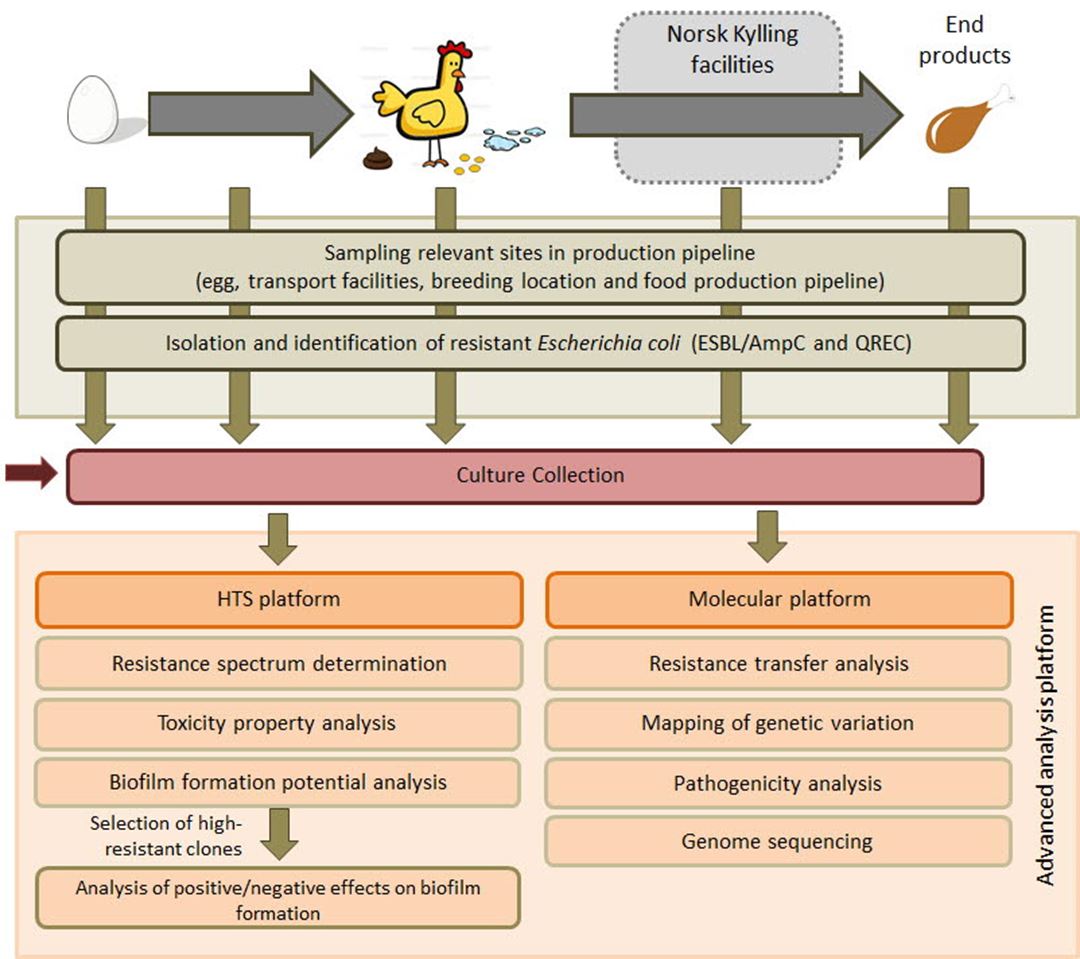In Norway the most problematic area concerning antibiotic resistance in food production and live-stock farming is within poultry production, were Escherichia coli resistant to quinolones (QREC) and extended spectrum beta lactamase producing E. coli (ESBL) are frequently found. The knowledge on the connection between antibiotic resistance in poultry and human consumption seen in a "one-health" aspect is limited, and there are central questions regarding risks, mechanisms, development, maintenance and spread of antibiotic resistance that remain unsolved.
In ResMap we will perform an extensive survey in a representative case poultry production pipeline (Norsk Kylling AS) to reveal the occurrence of resistant isolates present at such facilities. A high throughput robotic aided large scale and detailed study of the generated culture collection will increase knowledge on important factors for resistance development in such systems, as e.g. biofilm formation, variation in resistance spectrum and level i.e. presence of multi-drug resistant bacteria, resistance mechanisms, as well as resistance transfer to known human and poultry pathogens. The effect of commonly used disinfectants on biofilms will also be determined by controlled studies in biofilm model systems.
The main expected achievements from the project will be to fill knowledge gaps in the understanding of antibiotic resistance occurrence, development and maintenance to improve the methodology for resistance analyses, and also contribute to increased quality measures in the poultry industry for control and reduction of antibiotic resistance. The project will contribute to increased understanding of bacterial antibiotic resistance in Norwegian food production, in relation to consumption of poultry risk products and impacts on human health.
Project consortium: The project consortium consists of Department of Biotechnology at SINTEF Materials and Chemistry, Centre of Molecular Inflammation Research (CEMIR) at Department of Cancer Research and Molecular Medicine at the Norwegian University of Science and Technology (NTNU) and Department of Laboratory Medicine (NTNU). Closely associated is also Norsk Kylling AS which will serve as the sampling site. A reference group comprising members from Mattilsynet, Animalia, Norsk Kylling and Department of Public Health and general practice (NTNU) is established and will be connected to the project team.
The project is financed through the BIONÆR program in The Norwegian Research Council.


